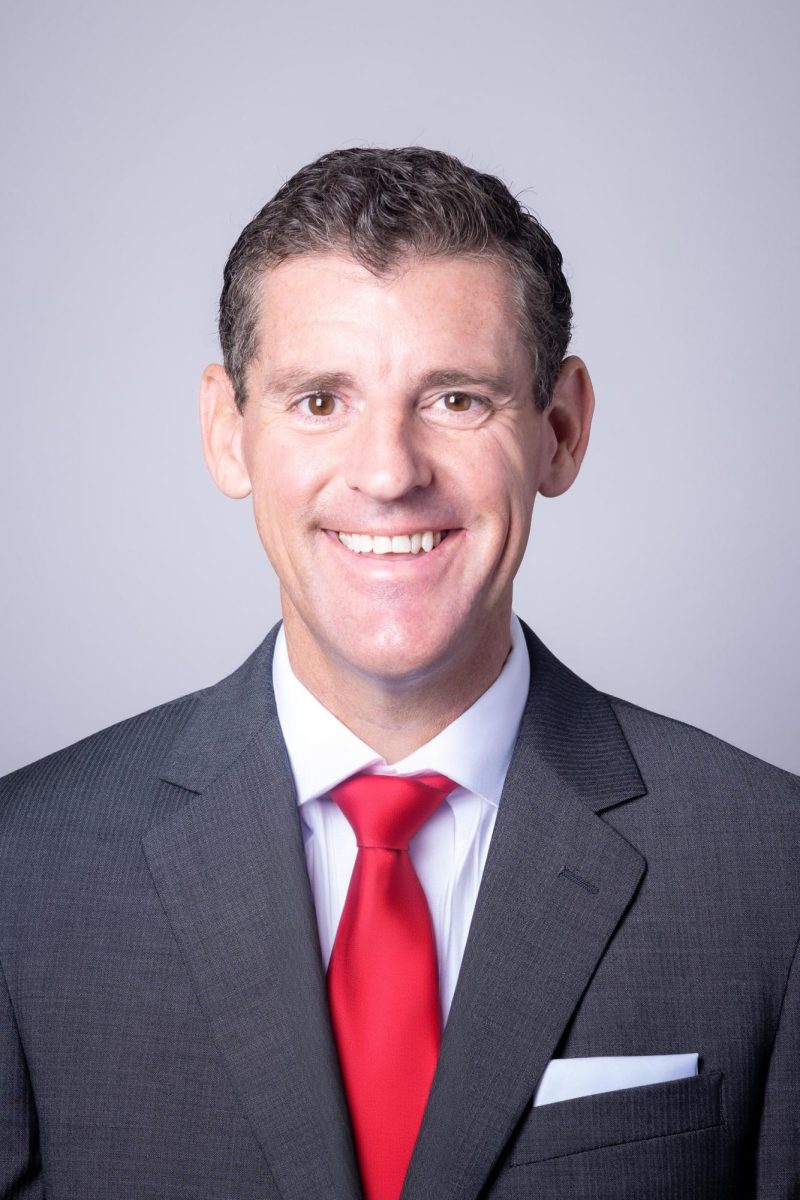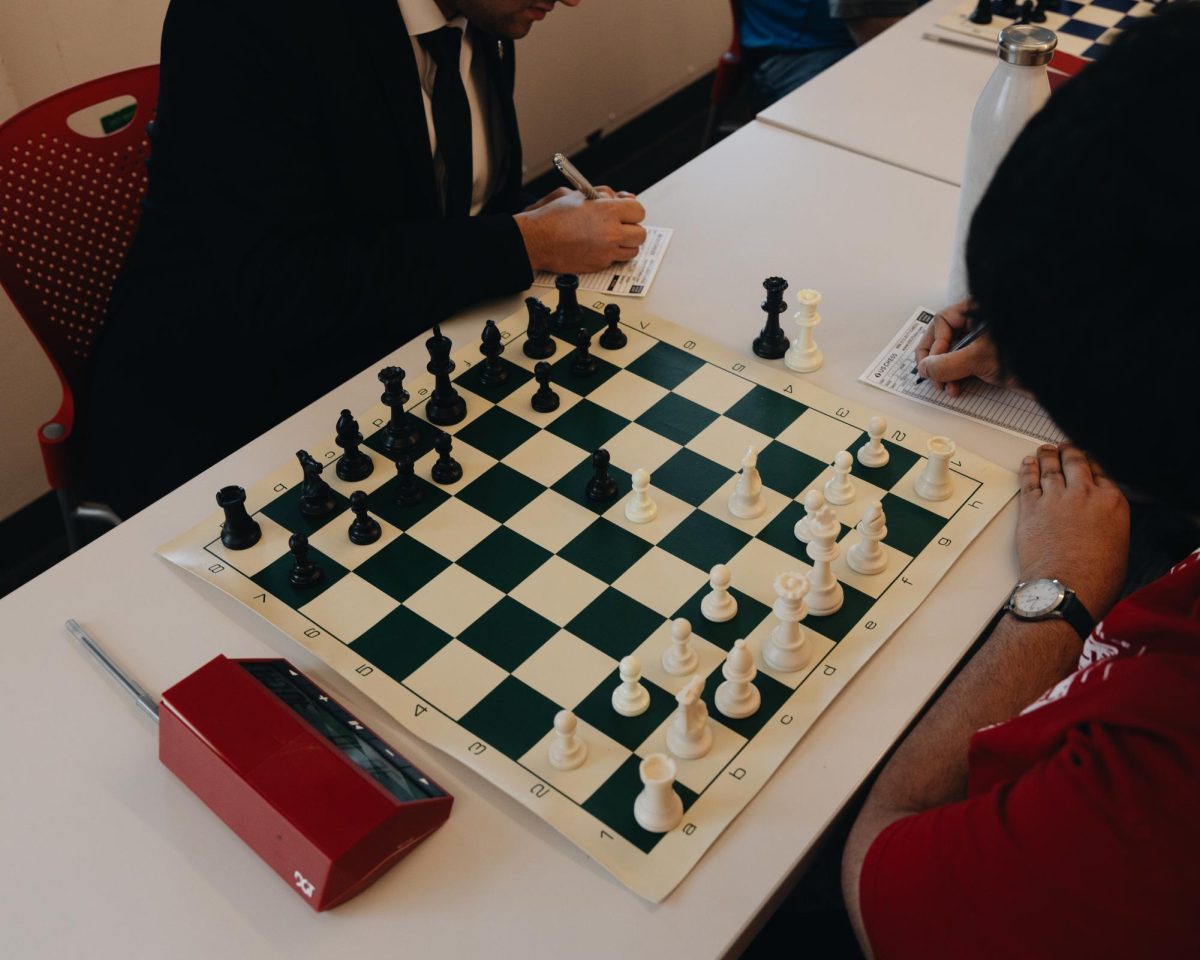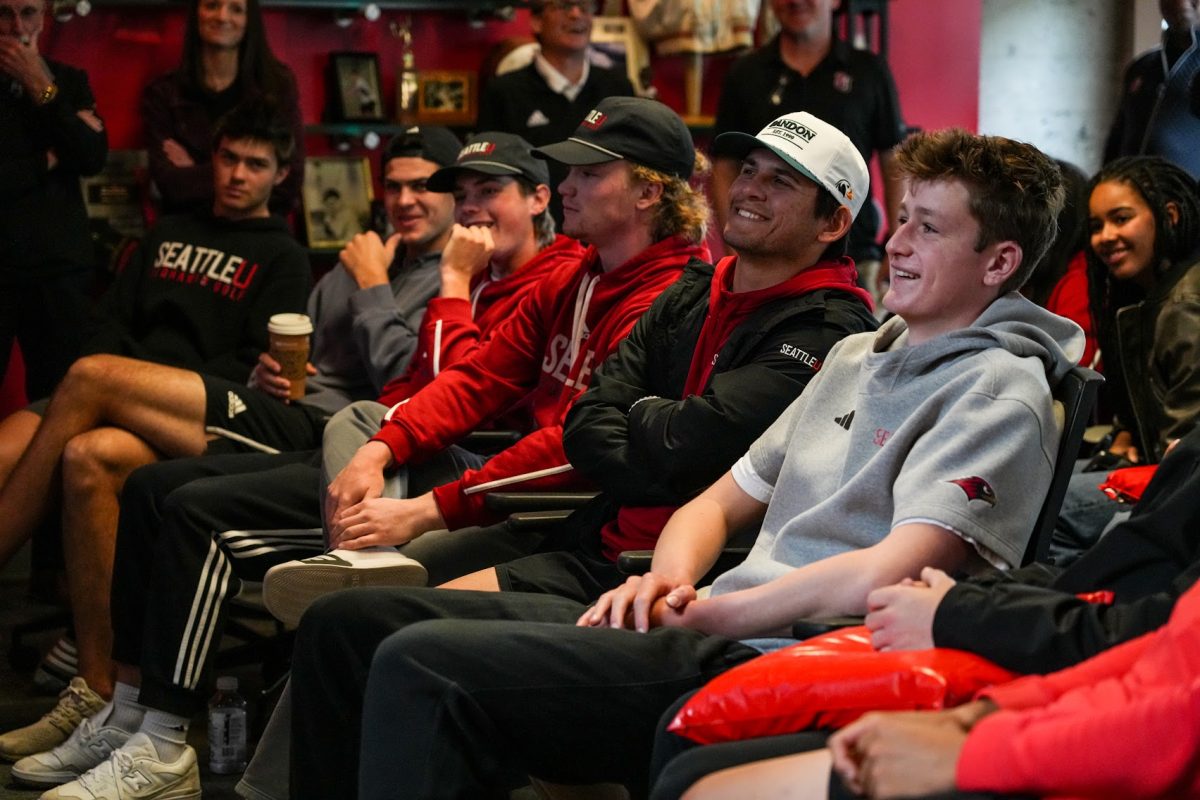Andy Fee is Seattle University’s new deputy athletic director, arriving just in time for an exciting period of change in Redhawk sports. Crucial NCAA shifts on player compensation and Seattle U’s own transition to the West Coast Conference (WCC) means that the school is entering a new era of intercollegiate competition.
Called upon by Vice President of Athletics Shaney Fink, Fee departed the University of Washington after two years to join Seattle U. Prior to his stint as a Husky, Fee was athletic director at Long Beach State. He brings a wealth of experience to campus, with this fall marking his 26th year working in college athletics.
Fee and Fink worked together at the University of San Diego from 2002 to 2010. The upcoming move to the WCC created the perfect opportunity for Fee to join Fink and the rest of Seattle U Athletics as Deputy Athletic Director.
There is a lot of work ahead as part of this new role. But Fee, who described himself as a competitive person driven by strong values, is ready to help Seattle U rise to the challenges ahead.
The following is a condensed interview with Andy Fee from Sept. 3.
DT: How do you feel about your transition from Long Beach State and UW, which have 30-40,000 students, to Seattle U, which has less than 8,000 students?
AF: I’m really excited. I enjoyed my time at the larger universities. I’ve been really lucky to work at some great schools, but Seattle University is kind of really more who I am.
To be at a values-based institution, a Jesuit university like Seattle University really does fit who I am. And you know, the last couple of weeks has already felt like home in terms of the feel just walking across the campus.
There’s always advantages and disadvantages to wherever you are. I don’t really feel concerned about the disadvantages, you know, of having 8,000 or less students. To me, that’s an advantage as I look at it in terms of who we recruit and what we are espousing to be.
DT: The change to a new conference is one of the most exciting things coming to Seattle U over the next year. What is going to change for Seattle U Athletics in the WCC?
AF: It’s gonna be really exciting. I think that the benefit of being in the West Coast Conference is really competing against like institutions. In terms of travel for our student athletes, it’s going to be a lot easier staying within the time zone.
For those fans old enough to remember a lot of that legacy I keep talking about, you know, Seattle used to be a member of the West Coast Conference. And so I think it’s kind of a return to where we once competed, and I think that’s exciting.
The challenges are, you know, it’s a really competitive league. That’s something we talk about all the time here is kind of the grit and resilience of our student athletes and athletic programs. And we love to go up and compete against the best. And in the West Coast Conference, across the board, across many sports, you’re going to be competing against the best. Tons of top 25 ranked programs. And certainly, it’s exciting to think about Gonzaga and having that rivalry.
DT: For sports, being in the middle of Seattle can be challenging. The men’s baseball team plays at Bannerwood Park in Bellevue which is less accessible for students. Are there any changes coming to manage these challenges?
AF: Being in an urban center is quite challenging. But that’s something we’ve got to look at. One, how do we get people motivated to get up and literally get to the venue?
And then two, when they’re at the venue, how do we make sure that they feel that’s something they want to come back to? Once students are back fully here, I’m already trying to set up conversations with students. I want to make sure that we do really listen to what the students see in terms of what is it like to come to an athletic event and what would be more motivating for them to come back?
DT: In this new era of Redhawk sports, what is most important to you?
AF: I would really encourage our fans, our students, our donors, and the city of Seattle to really get behind our programs here. Because we already know the success we’ve had, and if we can build on that in terms of resources, it’s an amazing opportunity.
That’ll be our goal over the next few years, to really work on our relationship with our fans. I think there’s a proud tradition and we just want to keep building it and serve the community and serve this campus. I think we’ve been doing that for many years and I’m excited about the future as well.







![Welcoming the World Through Sport: Why Cricket Belongs at Seattle U [OPINION]](https://seattlespectator.com/wp-content/uploads/2025/04/cricke66_color_texture-1200x960.png)
